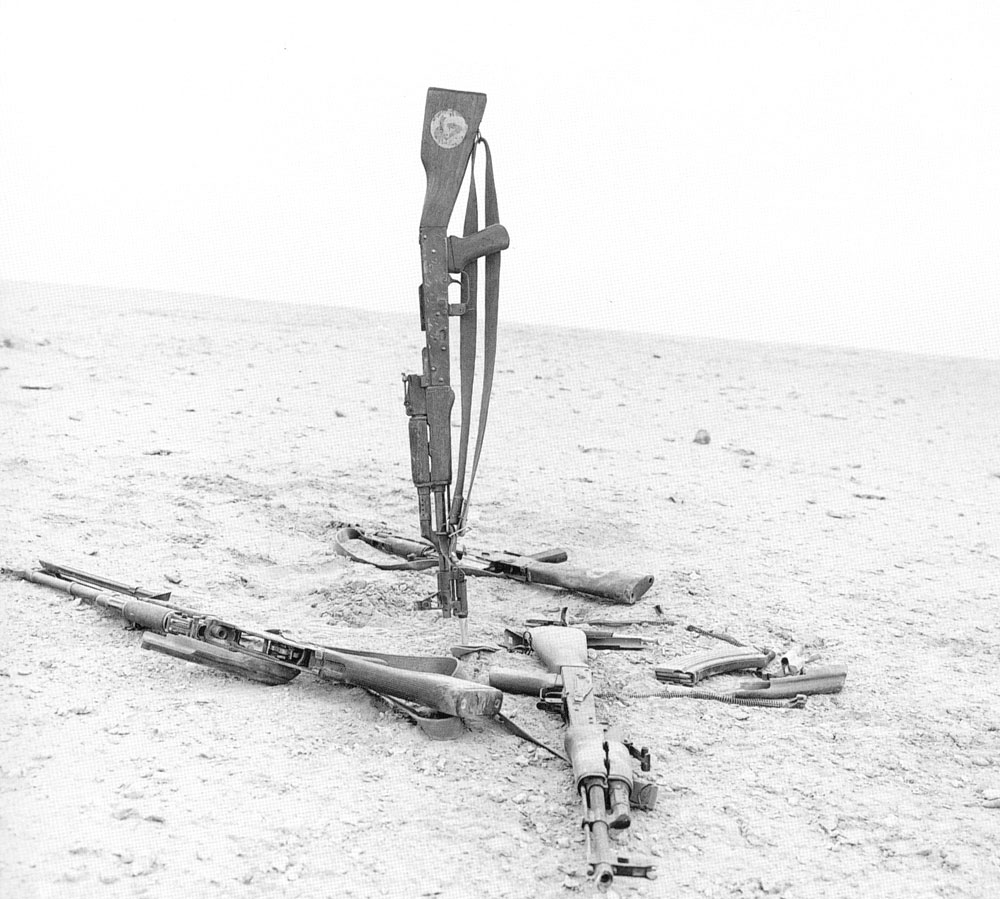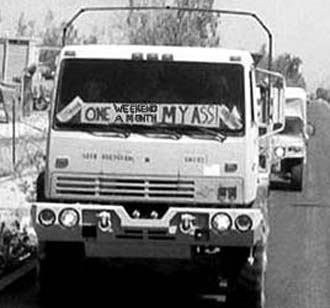 Download PDF of this full issue: v34n1.pdf (11.3 MB)
Download PDF of this full issue: v34n1.pdf (11.3 MB)From Vietnam Veterans Against the War, http://www.vvaw.org/veteran/article/?id=413
 Download PDF of this full issue: v34n1.pdf (11.3 MB) Download PDF of this full issue: v34n1.pdf (11.3 MB) |
When I hung up the phone after Barry Romo's call to ask me to be the GI counselor in VVAW's revived Military Counseling Service, (773-561-VVAW) I felt like the luckiest man alive. I wasn't surprised to get drafted like this, having done veteran, military and draft counseling in the Seventies, Eighties and Nineties. Then it hit me. The members of VVAW, whom I thought had done more for veterans and their families than any previous group through their work on Agent Orange and post-traumatic stress disorder (PTSD), were confident that I could do the job. They entrusted me with the welfare of their children's generation of GIs and their families. I had always been proud of my previous work and now I realized that those accomplishments had earned me this honor. The joy and pride I felt at that moment is something I will never forget.
Can you imagine the phone conversations among the national coordinators rehearsing how to talk me into taking this job (or, in reality, how to talk my wife, Roni, into allowing me to take it)? I had not yet told anyone, including Roni, that bureaucratic nonsense had recently caused me to quit my job as a mental health caseworker with homeless people and that I was actually looking for work. Destiny? Synchronicity? I took the job without consulting her, but my wife of twenty years somehow finds the patience to endure me. On the one hand, I'm back doing the job that I love. On the other hand, I had to tell my wife that I was losing medical, dental and pension benefits and more than half of my income.
Glad as I am to get "back in the saddle," I feel a responsibility to make sure that we do this right and fulfill the slogan: "Leave No Vet Behind!"
Perhaps some expect me to simply do one-on-one counseling, but I know how porous the government's "safety net" is and I know that this unresolved war will pump out more grief, violence and PTSD than anyone's prepared for and that I will soon be overwhelmed. "Angry young vets" forced the government, and society as a whole, to deal with Agent Orange and PTSD and, as a result, it's now possible to. The resulting medical and mental health advances and legal refinements have given this nation the ability to guarantee every American GI appropriate treatment as soon as they need it! But there's simply not enough money to do this because Congress refuses to make veterans' health care mandatory like Medicare or Social Security and continues to shortchange military health care. Our veterans will continue to suffer in ever-increasing numbers unless non-governmental resources are supported.

|
We need to make sure that all of our fellow Americans who volunteer to be trained to kill and are then sent into war to risk their lives can count on being welcomed home with honor and compassion. This is something that most returning veterans will be given by their families and friends and in official ceremonies and programs. But, for a variety of reasons, not all veterans feel welcomed when they return, and not all families awaiting their return feel comfortable just waiting. Support must be given to any effort to reach those who feel abandoned.
Neglected Casualties in the War Against Terrorism
As members of Vietnam Veterans Against the War, VVAW, we know that everyone's wartime experiences are unique, but all have been traumatic to some degree. Although most veterans find the help that they need to deal with what they saw and did or what was done to them during the war, some vets don't have the necessary supportive friends or family. Some can't find that help within the military or the VA or have lost all trust in the government that sent them to war. Many have been told to just "deal with it" or face ridicule for voicing their complaints. Some can't even ask and continue to suffer in silence.
VVAW has been dealing with these issues since 1967. Until our generation returned from war, post-traumatic stress disorder hadn't been named. The medical community finally recognized the "battle fatigue" and "shell shock" that afflicted previous veterans as this diagnosable, treatable illness. However, that couldn't be done until they were able to prove that herbicides, such as Agent Orange, were the other half of the initial diagnosis of "Vietnam Syndrome." So, after decades of scientific studies, political pressure, court mandates and legislative ruminations, the government has finally acknowledged "service connection" and pays compensation to these disabled veterans.
These lessons learned as a result of Vietnam have paved the way for payment to earlier mistreated veterans of atomic bomb and chemical weapons testing, although few survived long enough to see a dime. Attorneys are now able to represent some veterans in VA claims (which now have a Federal appeals court). However, the right of GIs to collective bargaining is now outlawed and their free speech and equal protection rights are routinely violated by local commanders. As for "don't ask, don't tell"? Don't ask.
The members of VVAW have accumulated a wealth of knowledge through our personal experiences and our continuing efforts to help our fellow veterans recover from the war and thrive in a society from which some feel excluded. Having survived our own problems, we feel duty-bound to use and pass on these skills so that future generations of "stressed-out" veterans have fewer suicides and wasted lives.
"Help is just a phone call away." While that may have been technically true during the Vietnam War, getting in touch with groups like VVAW was very difficult prior to the Internet and toll-free phone numbers, especially for those overseas. The only people that most GIs could talk to were other GIs and veterans who also had doubts about the war and were as lost as they were. Now we have both the technical means and the knowledge and skills necessary to provide the services that were unavailable to most earlier veterans. Until we see the necessary invasion of U.S. military bases by social workers funded by the military, veterans' groups or the Red Cross, we have to do something, anything, now! That's why VVAW has revived its Military Counseling Service and drafted me.
All it takes is one phone with a sympathetic ear, a calming voice, a patient soul, an open heart and an experienced mind on the other end. Although some questions can't be answered, just being able to ask them is often enough for some callers. Was this war justified? Is it being fought in a "just" manner? How can I lose someone in the war and not be full of anger and hatred? Why did I survive? Do I have a duty to refuse to obey certain orders? Why don't people believe me when I talk about what they did to me? Am I a bad person because bad things happen to me? What can I do to feel better about all of the madness that I see in this world, my life and my mind?

|
Falling Through the Safety Net
"If you see something that needs doing, do it!" When my Vietnam veteran father taught me this value I'm sure he was thinking of my messy room and the overgrown lawn, but it led me to, and kept me in, veterans' counseling since my discharge from active duty. As a nation, we need to accept the responsibility to assure all GIs that we will provide them with any help that they need, even if that means that we, rather than our government, have to do it. Help me get the word out —both to the GIs and those who might be able to help them!
Legal Aid Professionals: I'm asking for volunteers to provide advice and representation to these returned veterans and those still on active duty. The needs include but aren't limited to: help in presenting discharge applications for medical or mental disability, conscientious objection, homosexuality, etc.; fighting discharges based on homosexuality, disobeying illegal orders, false charges etc.; assisting AWOL/deserters returning to military control; representation in courts martial or discharge upgrade applications; and helping victims of abuse or attacks file complaints and find protection.
Medical and Mental Health Professionals: Government doctors can handle most "routine" medical matters, but given this war's environmental dangers, cutting-edge diagnostics and second opinions may be essential. The pace, length, intensity and uncertainty of military deployments is very stressful, especially for an unprepared reservist. In addition to the stress caused by any war, this war's unpopularity is reflected in the dissatisfaction growing within the ranks. There is simply no excuse to allow veterans to commit violence against themselves, family members and the public. Post-traumatic stress disorder can't be allowed to decimate this generation.
I am compiling a confidential national referral list of legal aid, medical and mental health professionals. And they're not all volunteering to just wait for a call. We will encourage them and help them to organize seminars and group counseling for veterans, GIs, their families and support groups at military bases and Guard/Reserve units and at vet centers, churches, colleges or pup-tents that let us in. These volunteers will be able to identify and begin to treat the problems facing GIs and their families. In addition, they can give credible testimony about the gaps in the treatment and compensation "systems." We will then be able to produce timely and credible "evidence" to justify the need for more money, different laws or better programs.
We can't wait for the government to get around to doing this; we have to get it started ourselves. The existing toll-free GI Rights Hotline (800-394-9544), which makes referrals to VVAW, is recruiting and training nonprofessional, volunteer telephone counselors around the country, many of whom may be vets. Everyone could benefit from regular informal meetings: the new and professional volunteers (some may be from the military or VA), veterans, GIs and their families. As always, we start by raising awareness of the problem and then we organize to solve it. Articles in the Veteran can help you explain the need for this effort to friends or coworkers. Look for local events, demonstrations or seminars to attend and "network" there. If they're not interested, write letters to the editor inviting people to meetings. Use me! I may know someone else in your area or your meeting may be the first of many for your neighbors who feel as lost as you.